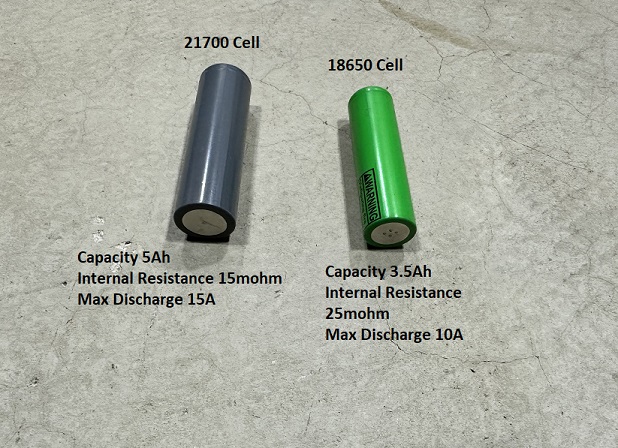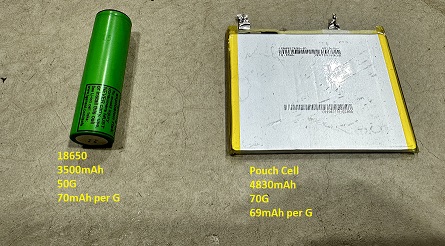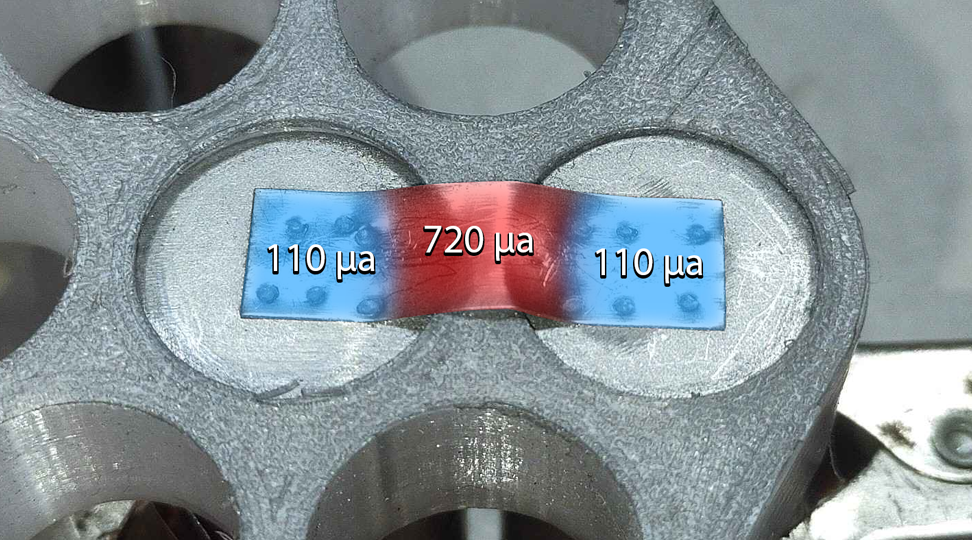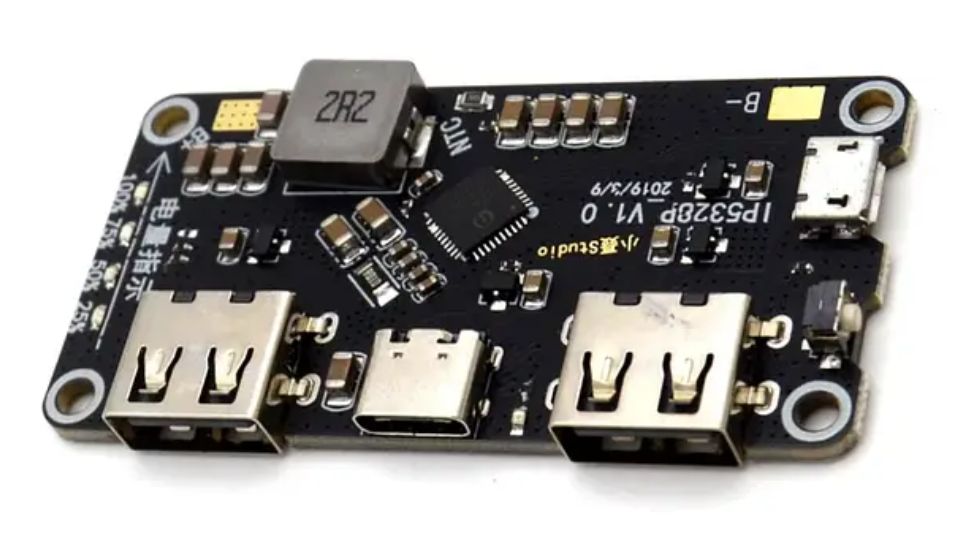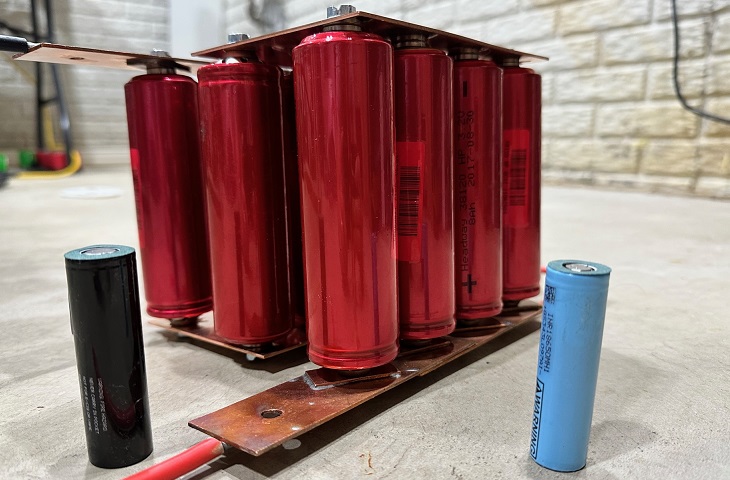
What is Stronger Than 18650?
Table of Contents
Several battery types like 21700s, 26650s, 32650s, 38120s, and LiPo packs can be considered stronger than a 18650 battery, given their higher current carrying capability due to their larger size and greater capacity.
Understanding Battery Strength
The strength of a battery, often referring to its current carrying capacity, is a measure of the number of amps it can deliver continuously. This current carrying capacity is often presented in terms of a C rating, which is a multiple of the battery's energy capacity.
To better understand C ratings, it's helpful to use a few examples. The average 18650 has a capacity of about 2.5Ah and a C rating of 3. This means that it can deliver 7.5 amps of continuous current because 2.5 times 3 is 7.5. A common-sized 21700 is 5Ah with a C rating of 3, which would be a 15 amp continuous current carrying capacity. So when comparing an 18650 to a 21700 cell you can see above the 21700 cell is much stronger.
Beyond the 18650: Stronger Battery Cells
There are several battery cells that surpass the 18650's current carrying capacity. There are 21700, 26650, and 32120s battery cells. These cells are physically larger and have a greater capacity and current carrying capability than the 18650, even if they have the same C rating. So, for this reason, these types of cells would be considered stronger than an 18650.
There is a 21700 cell called the P45A from a company called Molicel. It uses the NMC chemistry and can do 45 amps continuously. That level of power is much, much stronger than any 18650 on the market.
26650 cells are generally LFP chemistry and are pretty rare to find, but they are out there on the market. They are typically around 5 amp hours and can do 3 to 5 C continuously depending on the cell.
The strongest canister cell, however, is probably Headway 38120 cells. Those cells can do a staggering 200 amps of current continuously, and generally have an 8Ah capacity, meaning they can do 25C. Due to this staggering strength, these are often used in car audio battery packs.
Lipos Strongest Pouch-Based Battery
Perhaps the strongest battery is a battery containing Lipo cells. Due to their larger physical size and totally different construction, they offer a much larger contact area in the anode and cathode interface. This characteristic enables them to deliver a significantly higher amount of current, making them much stronger than the 18650s and even other larger cells.
When looking to choose between lipo-based pouch cells or 18650 cylindrical cells you need to weigh the pros and cons. For instance lipos swell, they can be easily damaged, and are just not generally safe to use. So, when looking for a battery that is stronger than an 18650, LiPo should really only be used if there is no other viable option.
Battery Manufacturing and Quality Impact on Strength
When assessing the strength of a battery, manufacturing, and quality control processes come into play. High-quality cells from reputable manufacturers such as Molicel, Headway, and Samsung will generally be stronger over time than low-quality cells. In addition, high-quality, reliable cells will have the most comprehensive safety mechanisms built into their design, whereas cheaper cells could cut corners.
Also, there is much more to a battery than simply the cells that are used. The connections between the cells are just as important. A battery with great cells can be built, and if the connections between the cells are too poor, you won't be able to feel the advantage from those nice cells because the voltage drop between all the junctions would be too high.
This is one of the main reasons that low-quality batteries get hot. Heat is already coming from the cells, so if any additional heat comes from the battery conductor, it starts to add up quickly.
Another thing to consider is the wire and soldering quality. You could have a totally great battery that ends up being unreliable or low performing due to something as simple as to thin of a wire or too poor of a solder joint.
Cell Chemistries Effect on Battery Strength
The chemistry of the battery also plays a vital role in determining its strength. For example, Nickel Manganese Cobalt (NMC) batteries, such as the P45A, have a high energy density. This makes them stronger in terms of overall capacity. On the other hand, Lithium Iron Phosphate (LFP) cells are known for their longevity, so they can be considered strong in that way.
Ultimately, however, when ‘strength’ is discussed related to battery cells, it's referring to current carrying capacity. In that regard, LFP cells win as they are able to deliver much more current than an equally sized NMC 18650.
